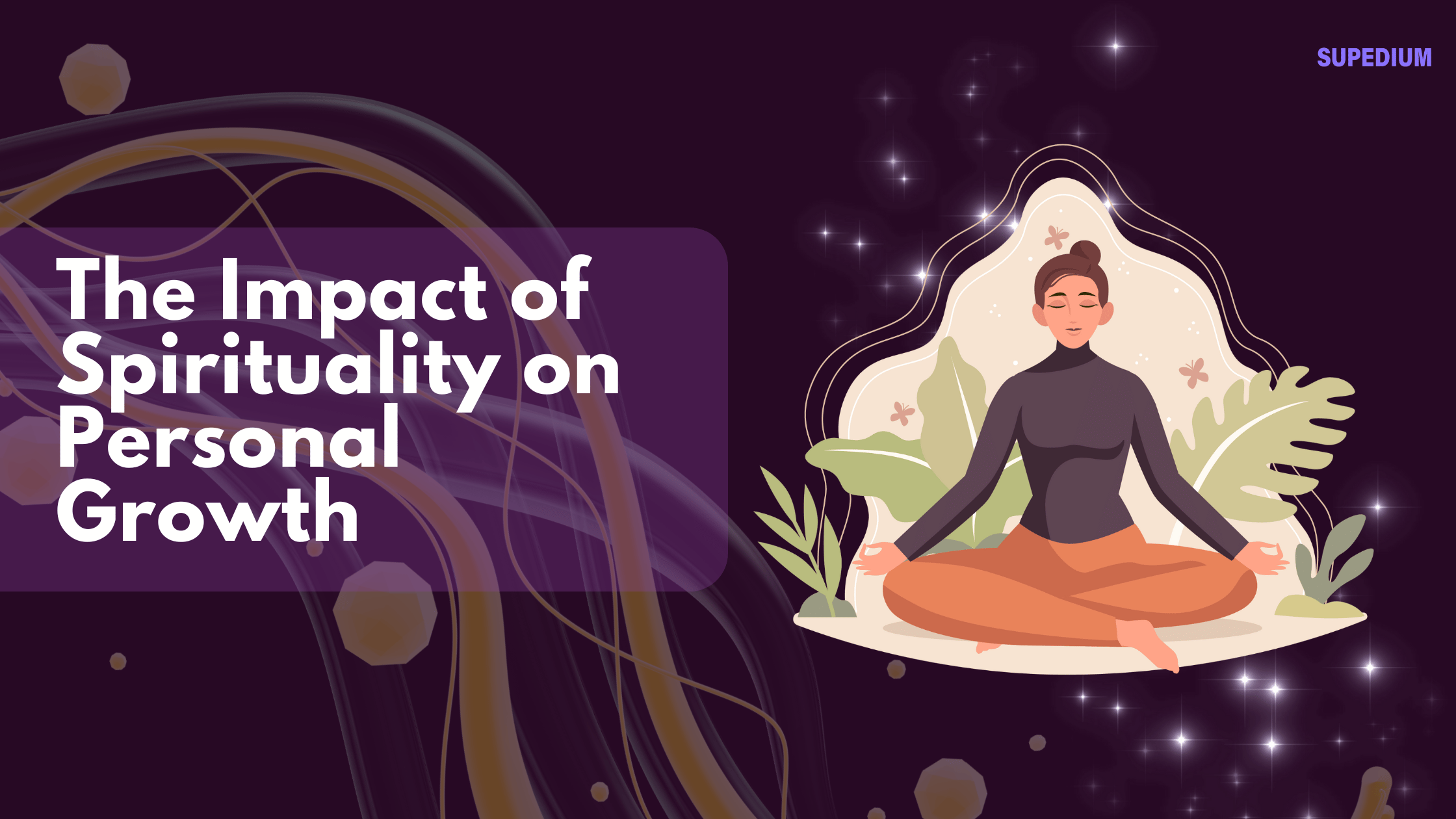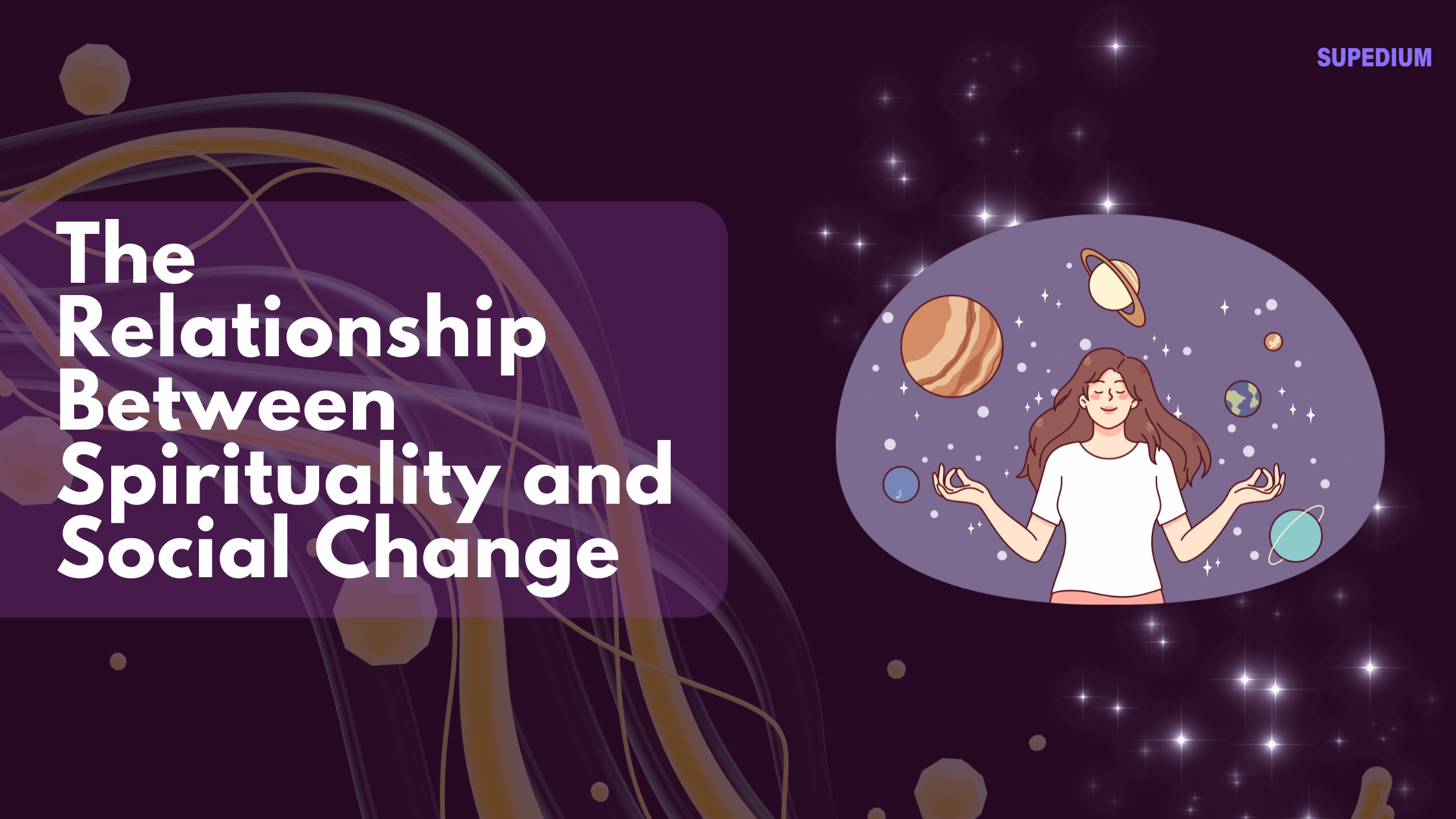Table of Contents
- 1 Introduction
- 2 The Concept of Spirituality
- 3 Theories and Frameworks Linking Spirituality to Personal Growth
- 4 Mechanisms Through Which Spirituality Influences Personal Growth
- 5 Benefits of Spirituality on Personal Growth
- 6 Case Studies and Real-Life Examples
- 7 Criticisms and Limitations
- 8 Practical Applications
- 9 Conclusion
![]()
Introduction
Spirituality, often described as the search for meaning and purpose beyond the material world, has increasingly become a focal point for individuals seeking personal growth. While spirituality is commonly associated with religion, it is distinct in its broader application, encompassing various practices and beliefs that contribute to a deeper understanding of oneself and the world. Personal growth, on the other hand, refers to the ongoing process of developing and improving oneself across multiple dimensions—mental, emotional, social, and more. This article explores how spirituality impacts personal growth by examining relevant theories, mechanisms, benefits, and real-life examples.
The Concept of Spirituality
Historical Perspectives
Historically, spirituality has been a fundamental aspect of human societies, from ancient cultures with their pantheons of gods and spiritual rituals to early philosophical schools that sought to understand the nature of existence. In many ancient civilizations, spirituality was intertwined with daily life and governance, influencing everything from social norms to scientific advancements. Over time, spiritual practices evolved, integrating new philosophical and theological insights while retaining core principles of seeking meaning and connection.
Modern Interpretations
In contemporary contexts, spirituality can be both secular and religious. Secular spirituality often focuses on personal well-being and existential meaning without adherence to specific religious doctrines. New Age spirituality, for instance, encompasses a wide range of practices and beliefs aimed at personal transformation and healing. Despite its diverse manifestations, modern spirituality generally emphasizes personal experience and inner development over formal institutional structures.
Core Components of Spirituality
Key components of spirituality include belief systems, practices, and values. Belief systems may involve understanding one’s place in the universe or the nature of a higher power. Practices such as meditation, prayer, and ritual help individuals connect with their inner selves or a higher power. Spiritual values often emphasize compassion, integrity, and a sense of interconnectedness, which influence behavior and decision-making.
Theories and Frameworks Linking Spirituality to Personal Growth
Psychological Perspectives
Several psychological theories offer insights into how spirituality supports personal growth. Maslow’s Hierarchy of Needs, for example, posits that self-actualization—the fulfillment of personal potential—is the highest level of need. Spirituality can facilitate this by helping individuals achieve a deeper understanding of themselves and their place in the world. Similarly, Carl Jung’s theory of individuation suggests that spirituality plays a crucial role in integrating different aspects of the self, leading to greater wholeness and personal development.
Philosophical Perspectives
From a philosophical standpoint, existentialism emphasizes the search for meaning as a central aspect of human existence. Spirituality can provide a framework for this search, offering individuals a sense of purpose and direction. By aligning personal goals and values with spiritual insights, individuals often find greater clarity and motivation in their lives.
Sociological Perspectives
Sociologically, spirituality can influence personal growth through community and social support. Spiritual communities often provide a network of support and shared values that can enhance social relationships and personal well-being. Moreover, spiritual beliefs can shape social behavior, encouraging individuals to engage in altruistic and ethical actions that contribute to their personal development.
Mechanisms Through Which Spirituality Influences Personal Growth
Emotional Regulation
One significant way spirituality impacts personal growth is through emotional regulation. Spiritual practices such as meditation and mindfulness help individuals manage stress, reduce anxiety, and enhance emotional stability. These practices foster a sense of inner peace and resilience, allowing individuals to navigate life’s challenges more effectively.
Self-Awareness and Self-Reflection
Spirituality also promotes self-awareness and self-reflection. Practices like journaling, meditation, and introspective rituals encourage individuals to explore their thoughts, emotions, and values. This enhanced self-awareness helps individuals gain insight into their motivations and behaviors, leading to personal growth and a more authentic sense of self.
Life Purpose and Meaning
A sense of purpose and meaning is often central to personal growth. Spirituality can help individuals discover their life purpose by aligning their actions and goals with their spiritual values. This alignment fosters a sense of fulfillment and direction, motivating individuals to pursue meaningful goals and overcome obstacles.
Benefits of Spirituality on Personal Growth
Improved Mental Health
Spirituality has been linked to improved mental health outcomes, including reduced levels of anxiety and depression. Engaging in spiritual practices can enhance overall psychological well-being by providing coping strategies, fostering a positive outlook, and promoting a sense of connection and support.
Enhanced Relationships
Spirituality can also positively impact relationships. By cultivating empathy, compassion, and understanding, individuals often experience more fulfilling and harmonious interactions with others. Spiritual values encourage ethical behavior and effective conflict resolution, contributing to healthier and more supportive relationships.
Increased Resilience
Spirituality contributes to increased resilience by providing individuals with a broader perspective on life’s challenges. Spiritual beliefs and practices help individuals cope with adversity by fostering a sense of meaning and purpose, which enhances their ability to persevere through difficult times.
Case Studies and Real-Life Examples
Historical Figures
Many historical figures have demonstrated the profound impact of spirituality on personal growth. For example, Mahatma Gandhi’s spiritual beliefs played a crucial role in his personal development and leadership in the Indian independence movement. His commitment to nonviolence and self-discipline reflected his deep spiritual convictions and contributed to his remarkable achievements.
Modern Examples
In contemporary contexts, individuals across diverse spiritual traditions have shared their experiences of personal growth through spirituality. For instance, individuals who practice mindfulness and meditation often report significant improvements in mental clarity, emotional stability, and overall life satisfaction. These personal accounts illustrate how spiritual practices can lead to meaningful transformations and personal development.
Criticisms and Limitations
Potential Negative Aspects
While spirituality can offer numerous benefits, it is not without potential drawbacks. For example, spiritual bypassing—using spirituality to avoid addressing psychological issues—can hinder personal growth. Additionally, an overemphasis on spirituality might lead individuals to neglect practical aspects of their lives, such as financial or social responsibilities.
Cultural and Individual Differences
Spiritual experiences and their impacts can vary widely across cultures and individuals. What works for one person may not be applicable to another, and cultural differences can influence how spirituality is practiced and perceived. It is essential to consider these variations when evaluating the impact of spirituality on personal growth.
Practical Applications
Incorporating Spiritual Practices into Daily Life
Individuals interested in integrating spirituality into their daily lives can engage in practices such as meditation, mindfulness, and reflective journaling. Establishing a regular spiritual routine can help individuals maintain a sense of connection and purpose throughout their day-to-day activities.
Integrating Spirituality into Personal Development Plans
For those seeking to incorporate spirituality into personal development plans, aligning goals with spiritual values can enhance motivation and direction. By setting objectives that reflect one’s spiritual beliefs, individuals can pursue personal and professional goals with a sense of purpose and alignment.
Conclusion
Spirituality plays a significant role in personal growth by influencing emotional regulation, self-awareness, and the sense of purpose. While it offers numerous benefits, including improved mental health, enhanced relationships, and increased resilience, it is important to recognize potential criticisms and limitations. By understanding and applying spiritual practices thoughtfully, individuals can harness the transformative power of spirituality to foster meaningful personal development.
Share This





Be the first to comment